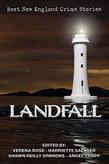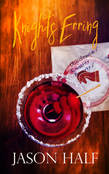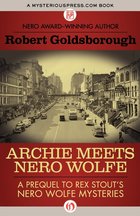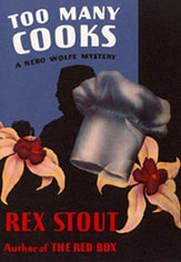

Also débuting this year was my first long-form effort, and my first LGBTQ romantic comedy to boot. Knights Erring, available from Less Than Three Press, follows three friends who bet each other that they can't uphold the tenets of chivalry (including poverty, chastity, and obedience) for two weeks. The story made it through multiple drafts and grew considerably, and I'm very happy with the current version.
- Beartown (2016) – Fredrik Backman's unsentimental exploration of a small northern town that lives - and almost destroys itself - for its high school hockey team
- The Moving Target (1949) – Ross MacDonald's first Lew Archer mystery
- Exit, Pursued by a Bear (2012) – Lauren Gunderson's darkly comic play about a woman taking revenge on her abusive husband
- The Teapot Dome Scandal: How Big Oil Bought the Harding White House (2008) by Laton McCartney – why would this story of a corrupt president and a Republican congress trying to hide and bury illegal dealings seem familiar?
Finally, I will end by offering a version of the familiar New Year's Resolutions. In addition to hosting another Mitchell Mystery Reading Group event (two if I can manage it), 2019 will be the year I finally submit an entry for the Black Orchid Novella writing contest, sponsored by the Rex Stout appreciation club The Wolfe Pack. Before that, I should deliver a completed Act Two (currently in progress) for a stage comedy that I'm writing for a regional theater company. I'd like to also push myself to complete two new crime-themed short stories next year. And I want to keep my eyes open for new writing and contest opportunities, something that I don't always look for as rigorously as I should.
I hope everyone has a 2019 that rivals, nay exceeds, the success and joy that 2018 (hopefully) provided. And if your 2018 was less than you wanted it to be, you have every reason to be optimistic as we flip the calendar and turn the page together!
Peace and best wishes,
Jason Half


 RSS Feed
RSS Feed